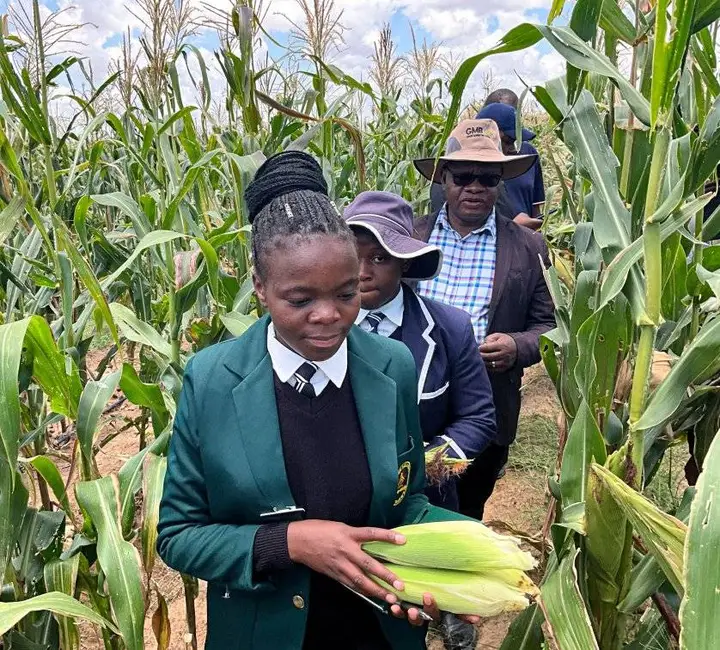Sharleen Mohammed
ZIMBABWE is making significant strides in promoting climate resilience and sustainable livelihoods through its innovative School Business Units (SBUs) initiative.
Ministry of Lands, Agriculture, Fisheries, Water and Rural Development, Permanent Secretary Professor Dr. Obert Jiri visited Murambinda A Primary School and Murambinda B Secondary Schools to witness the impact of these units firsthand.
Launched by His Excellency, President Emmerson Mnangagwa in April 2024, the SBUs have already generated over $8,000 in profits from maize and tomatoes, while providing nutritious meals for over 1,500 students.
The units are currently cultivating green mealies, tomatoes, and cucumbers, offering both nourishment and financial benefits to the schools.
“This initiative is a game-changer for our schools and communities,” said Professor Jiri during his visit. “By empowering our schools to grow their own food and generate income, we are promoting climate resilience, improving nutrition, and enhancing entrepreneurship skills.”
The SBUs initiative is part of the government’s efforts to promote sustainable development and address the challenges posed by climate change. As President Mnangagwa emphasized, “This initiative is a crucial step towards achieving sustainable development and promoting climate resilience in Zimbabwe.
We are committed to supporting innovative solutions that benefit our communities and promote economic growth.”
The success of the SBUs initiative has the potential to contribute significantly to Zimbabwe’s Rural Development thrust and demonstrate the potential of educational institutions to drive economic growth. As the program expands, it is expected to have a positive impact on the lives of thousands of students and community members.
“We are proud of what we have achieved so far, and we look forward to continuing to support the growth and development of our schools and communities,” said Professor Jiri.


